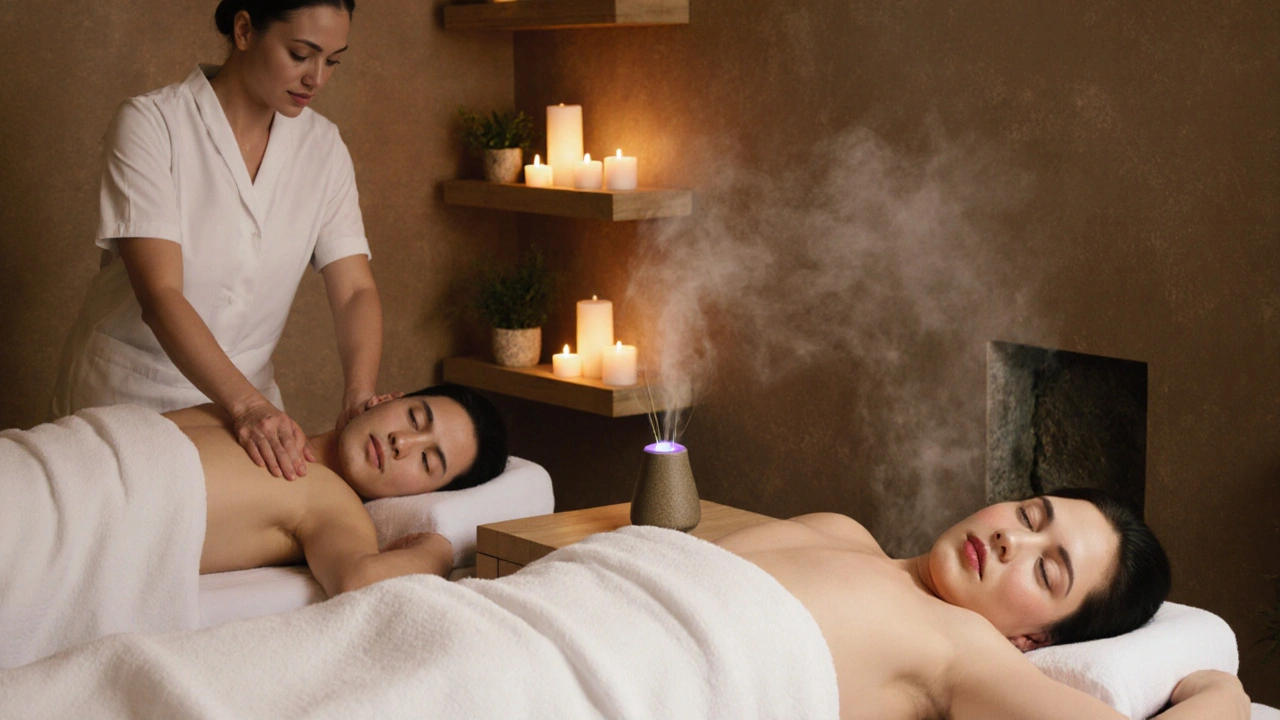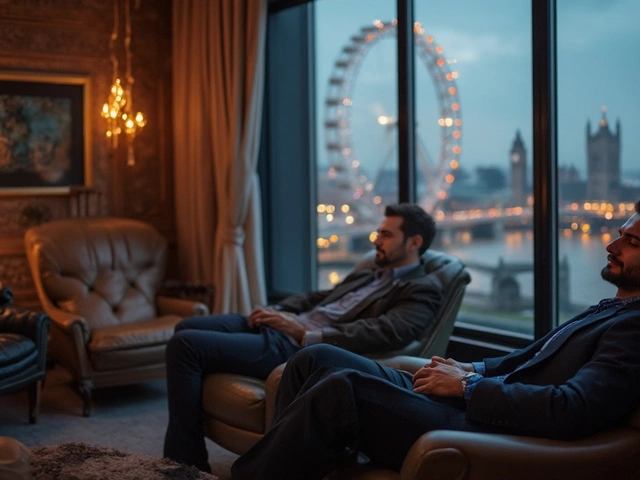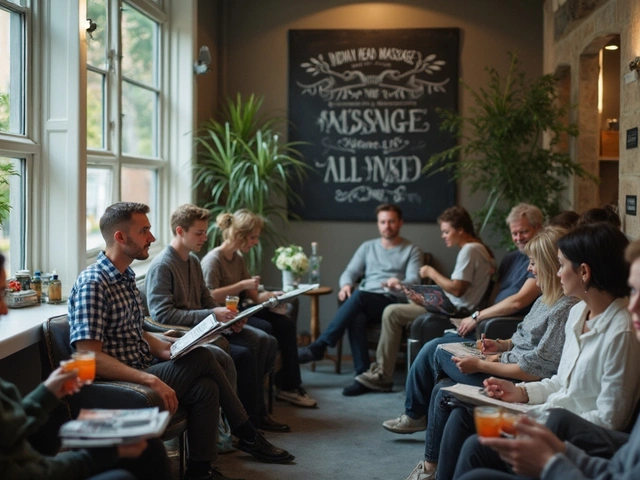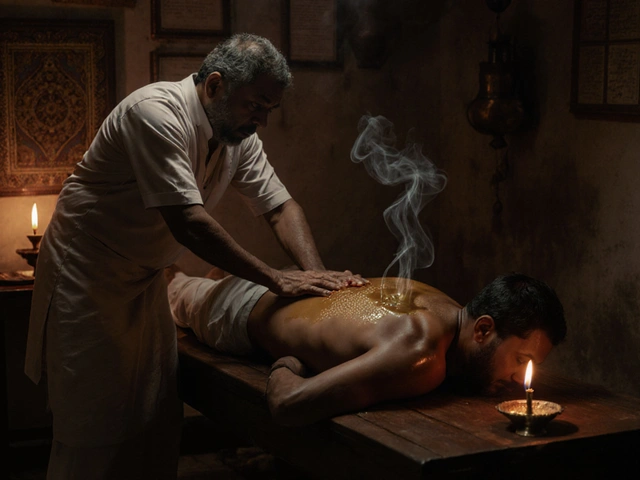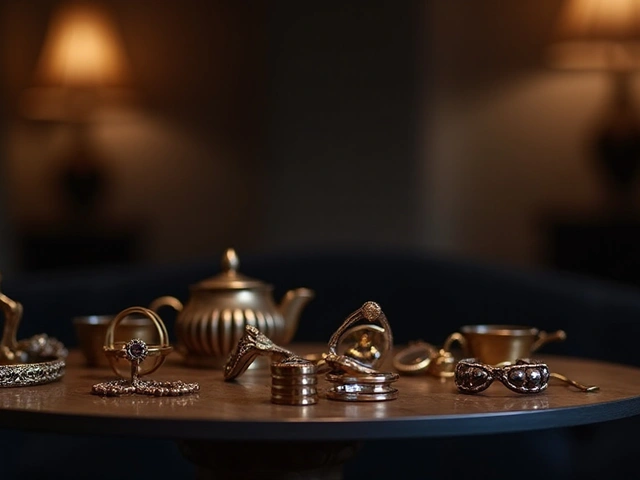When two people share a couples massage a synchronized therapeutic experience designed to relax, reconnect, and rejuvenate partners, the result isn’t just a happy hour for the muscles - it’s a biochemical cocktail that fuels intimacy and wellbeing.
What Exactly Is a Couples Massage?
A couples massage is a side‑by‑side session where two clients receive professional bodywork simultaneously, usually in the same treatment room. The therapist (or two therapists) tailors the pressure, strokes, and techniques to each partner, while the shared environment amplifies the therapeutic effect. Typical formats include Swedish, deep‑tissue, or aromatherapy styles, often enhanced with heated stones or aromatherapy diffusers.
How to Book a Couples Massage
Getting a couples massage is straightforward if you follow these steps:
- Choose a reputable spa or wellness centre. Look for certifications, customer reviews, and clear hygiene protocols.
- Decide on the massage type (Swedish, deep‑tissue, hot stone) and any add‑ons such as aromatherapy or reflexology.
- Contact the venue via phone or online booking portal. Confirm they can accommodate two guests in the same room and ask about therapist availability.
- Agree on the session length. Most spas offer 60‑minute, 90‑minute, and 120‑minute slots. Prices typically range from £90 for a 60‑minute session to £180 for a 120‑minute experience in London.
- Arrive 10‑15 minutes early to fill out intake forms, discuss any health concerns, and set the room temperature and music preferences.
Why Couples Massage Is So Popular
Three core reasons drive demand:
- Shared stress relief: When both partners unwind together, the collective stress reduction is greater than the sum of two separate sessions.
- Hormonal bonding: Physical touch triggers the release of oxytocin, the "love hormone," which enhances trust and emotional closeness.
- Luxury bonding time: Couples often view the session as a mini‑retreat, a chance to prioritize the relationship amid busy lives.
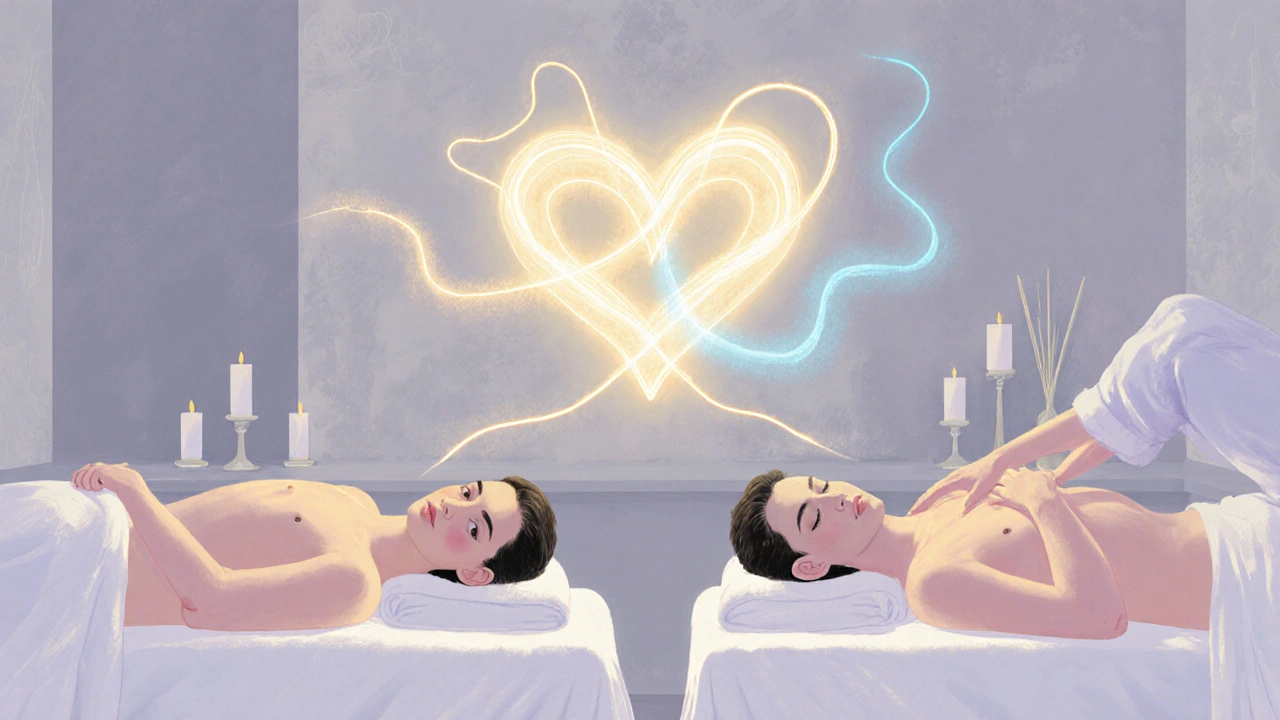
The Science: Hormones, Neurotransmitters, and Physiology
Massage therapy influences the body at several levels:
- Oxytocin - gentle skin‑to‑skin contact stimulates the hypothalamus to release oxytocin, fostering feelings of attachment. Studies show a 30‑40% increase in circulating oxytocin after a 60‑minute massage.
- Endorphins - the body’s natural painkillers rise during rhythmic pressure, providing a mild euphoria that can last several hours.
- Cortisol - stress hormone levels typically drop 25‑35% after a full session, leading to lower blood pressure and improved sleep quality.
- Serotonin - mood‑regulating neurotransmitter levels improve, contributing to a calmer, more optimistic outlook.
The combined effect of these biochemicals creates a state researchers call "relaxation‑induced bonding," which is why many couples report heightened intimacy after the treatment.
Couples Massage vs. Solo Massage: A Quick Comparison
| Benefit | Solo Massage | Couples Massage |
|---|---|---|
| Oxytocin Increase | Modest (10‑15%) | High (30‑40%) |
| Stress Hormone Reduction | 20‑25% | 25‑35% |
| Shared Experience | None | Emotional bonding |
| Cost per Person (London) | £50‑£90 (60min) | £90‑£180 (60‑120min) |
| Time Efficiency | Separate bookings | Dual booking saves travel time |
While solo sessions remain valuable for individual injuries or deep‑tissue work, the added hormonal boost and shared relaxation make couples massage the superior choice for relationship enrichment.
What Emotions and Sensations Can You Expect?
During the session, most clients describe a progression of feelings:
- Initial calm - soft lighting, gentle music, and the cool scent of essential oils set a soothing tone.
- Deep relaxation - as muscles loosen, you notice a warm, heavy sensation spreading from the limbs to the core.
- Emotional openness - the rise in oxytocin often triggers a subtle sense of vulnerability, making it easier to share thoughts with your partner.
- Euphoric release - endorphins create a mild high, sometimes described as a "body buzz" that lingers after the treatment.
- Post‑session glow - a combination of lowered cortisol and increased serotonin leaves you feeling refreshed, affectionate, and mentally clear.
Many couples also report an increased sense of trust and a desire to spend more quality time together after the massage.
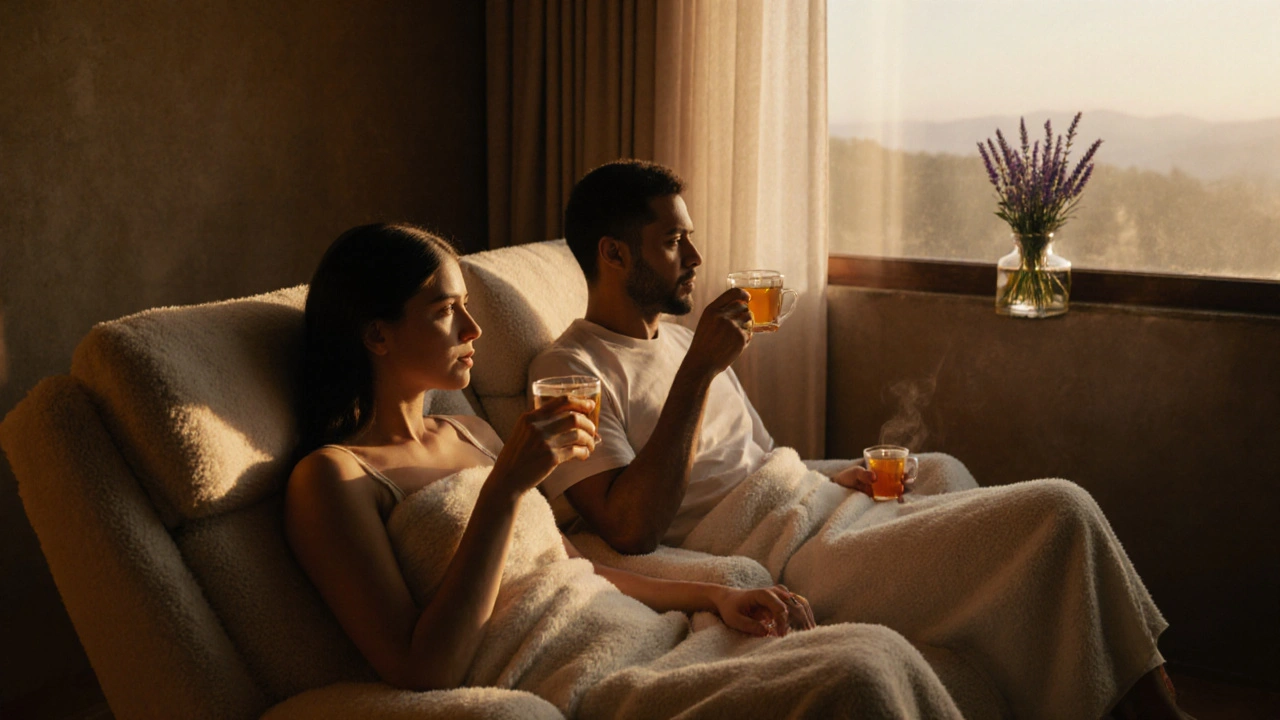
Practical Tips to Maximise the Experience
- Communicate preferences before the session. Let the therapist know about pressure levels, sensitive areas, and any health concerns.
- Choose complementary scents. Lavender promotes relaxation, while citrus can boost mood. Align the aroma with the emotional outcome you desire.
- Stay hydrated. Drinking water before and after the massage helps flush out toxins released from muscle tissue.
- Extend the afterglow. Plan a low‑key activity (e.g., a quiet walk or a cup of herbal tea) to sustain the hormonal benefits.
- Schedule regularly. Consistency compounds the benefits - a monthly couples massage can maintain lower stress levels and stronger connection over time.
Cost Considerations and Value Assessment
In major UK cities, price points vary:
- Budget spas in regional towns: £70‑£100 for a 60‑minute session.
- Mid‑range city locations (e.g., London, Manchester): £90‑£130 for 60 minutes, £150‑£200 for 90 minutes.
- Luxury boutique spas with private suites and premium oils: £180‑£250 for 90 minutes, often including champagne or a post‑massage lounge.
When you factor in the emotional and physiological benefits-particularly the oxytocin‑driven bonding-many couples view the expense as an investment in relationship health rather than a mere indulgence.
Frequently Asked Questions
What should I wear during a couples massage?
Most spas provide sheets and towels, so you can undress to your comfort level. Typically, you’ll be draped on a table, keeping modesty while allowing therapist access to the muscles they’ll treat.
Is it okay to talk to my partner during the session?
Yes, light conversation can enhance the bonding effect, but most people prefer quiet to focus on the physical sensations. Agree beforehand on whether you want a silent or chatty atmosphere.
Can we request a specific therapist?
Many upscale venues let you book a preferred therapist, especially if you have a regular practitioner you trust. It’s wise to call ahead and confirm availability.
How often should we have a couples massage?
Monthly sessions strike a good balance between maintaining physiological benefits and fitting into most schedules. Adjust frequency based on stress levels and budget.
Are there any health risks?
Massage is generally safe, but avoid it if you have acute infections, severe skin conditions, or unhealed fractures. Always disclose medical history during the intake.
Understanding the science behind a couples massage turns an indulgent treat into a purposeful act of health and connection. Whether you’re looking to unwind after a hectic week or strengthen your emotional bond, the hormonal and physiological responses make the experience uniquely rewarding.

